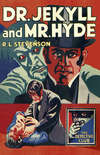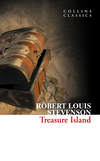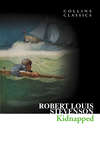Czytaj książkę: «Prince Otto, a Romance», strona 7
At this surprising outburst the whole council sat aghast.
‘Madam,’ said the Baron, alarmed out of his caution, ‘command yourself.’
‘Address yourself to me, sir!’ cried the Prince. ‘I will not bear these whisperings!’
Seraphina burst into tears.
‘Sir,’ cried the Baron, rising, ‘this lady – ’
‘Herr von Gondremark,’ said the Prince, ‘one more observation, and I place you under arrest.’
‘Your Highness is the master,’ replied Gondremark, bowing.
‘Bear it in mind more constantly,’ said Otto. ‘Herr Cancellarius, bring all the papers to my cabinet. Gentlemen, the council is dissolved.’
And he bowed and left the apartment, followed by Greisengesang and the secretaries, just at the moment when the Princess’s ladies, summoned in all haste, entered by another door to help her forth.
CHAPTER VIII – THE PARTY OF WAR TAKES ACTION
Half an hour after, Gondremark was once more closeted with Seraphina.
‘Where is he now?’ she asked, on his arrival.
‘Madam, he is with the Chancellor,’ replied the Baron. ‘Wonder of wonders, he is at work!’
‘Ah,’ she said, ‘he was born to torture me! O what a fall, what a humiliation! Such a scheme to wreck upon so small a trifle! But now all is lost.’
‘Madam,’ said Gondremark, ‘nothing is lost. Something, on the other hand, is found. You have found your senses; you see him as he is – see him as you see everything where your too-good heart is not in question – with the judicial, with the statesman’s eye. So long as he had a right to interfere, the empire that may be was still distant. I have not entered on this course without the plain foresight of its dangers; and even for this I was prepared. But, madam, I knew two things: I knew that you were born to command, that I was born to serve; I knew that by a rare conjuncture, the hand had found the tool; and from the first I was confident, as I am confident to-day, that no hereditary trifler has the power to shatter that alliance.’
‘I, born to command!’ she said. ‘Do you forget my tears?’
‘Madam, they were the tears of Alexander,’ cried the Baron. ‘They touched, they thrilled me; I, forgot myself a moment – even I! But do you suppose that I had not remarked, that I had not admired, your previous bearing? your great self-command? Ay, that was princely!’ He paused. ‘It was a thing to see. I drank confidence! I tried to imitate your calm. And I was well inspired; in my heart, I think that I was well inspired; that any man, within the reach of argument, had been convinced! But it was not to be; nor, madam, do I regret the failure. Let us be open; let me disclose my heart. I have loved two things, not unworthily: Grünewald and my sovereign!’ Here he kissed her hand. ‘Either I must resign my ministry, leave the land of my adoption and the queen whom I had chosen to obey – or – ’ He paused again.
‘Alas, Herr von Gondremark, there is no “or,”’ said Seraphina.
‘Nay, madam, give me time,’ he replied. ‘When first I saw you, you were still young; not every man would have remarked your powers; but I had not been twice honoured by your conversation ere I had found my mistress. I have, madam, I believe, some genius; and I have much ambition. But the genius is of the serving kind; and to offer a career to my ambition, I had to find one born to rule. This is the base and essence of our union; each had need of the other; each recognised, master and servant, lever and fulcrum, the complement of his endowment. Marriages, they say, are made in heaven: how much more these pure, laborious, intellectual fellowships, born to found empires! Nor is this all. We found each other ripe, filled with great ideas that took shape and clarified with every word. We grew together – ay, madam, in mind we grew together like twin children. All of my life until we met was petty and groping; was it not – I will flatter myself openly – it was the same with you! Not till then had you those eagle surveys, that wide and hopeful sweep of intuition! Thus we had formed ourselves, and we were ready.’
‘It is true,’ she cried. ‘I feel it. Yours is the genius; your generosity confounds your insight; all I could offer you was the position, was this throne, to be a fulcrum. But I offered it without reserve; I entered at least warmly into all your thoughts; you were sure of me – sure of my support – certain of justice. Tell me, tell me again, that I have helped you.’
‘Nay, madam,’ he said, ‘you made me. In everything you were my inspiration. And as we prepared our policy, weighing every step, how often have I had to admire your perspicacity, your man-like diligence and fortitude! You know that these are not the words of flattery; your conscience echoes them; have you spared a day? have you indulged yourself in any pleasure? Young and beautiful, you have lived a life of high intellectual effort, of irksome intellectual patience with details. Well, you have your reward: with the fall of Brandenau, the throne of your Empire is founded.’
‘What thought have you in your mind?’ she asked. ‘Is not all ruined?’
‘Nay, my Princess, the same thought is in both our minds,’ he said.
‘Herr von Gondremark,’ she replied, ‘by all that I hold sacred, I have none; I do not think at all; I am crushed.’
‘You are looking at the passionate side of a rich nature, misunderstood and recently insulted,’ said the Baron. ‘Look into your intellect, and tell me.’
‘I find nothing, nothing but tumult,’ she replied.
‘You find one word branded, madam,’ returned the Baron: ‘“Abdication!”’
‘O!’ she cried. ‘The coward! He leaves me to bear all, and in the hour of trial he stabs me from behind. There is nothing in him, not respect, not love, not courage – his wife, his dignity, his throne, the honour of his father, he forgets them all!’
‘Yes,’ pursued the Baron, ‘the word Abdication. I perceive a glimmering there.’
‘I read your fancy,’ she returned. ‘It is mere madness, midsummer madness. Baron, I am more unpopular than he. You know it. They can excuse, they can love, his weakness; but me, they hate.’
‘Such is the gratitude of peoples,’ said the Baron. ‘But we trifle. Here, madam, are my plain thoughts. The man who in the hour of danger speaks of abdication is, for me, a venomous animal. I speak with the bluntness of gravity, madam; this is no hour for mincing. The coward, in a station of authority, is more dangerous than fire. We dwell on a volcano; if this man can have his way, Grünewald before a week will have been deluged with innocent blood. You know the truth of what I say; we have looked unblenching into this ever-possible catastrophe. To him it is nothing: he will abdicate! Abdicate, just God! and this unhappy country committed to his charge, and the lives of men and the honour of women.’ His voice appeared to fail him; in an instant he had conquered his emotion and resumed: ‘But you, madam, conceive more worthily of your responsibilities. I am with you in the thought; and in the face of the horrors that I see impending, I say, and your heart repeats it – we have gone too far to pause. Honour, duty, ay, and the care of our own lives, demand we should proceed.’
She was looking at him, her brow thoughtfully knitted. ‘I feel it,’ she said. ‘But how? He has the power.’
‘The power, madam? The power is in the army,’ he replied; and then hastily, ere she could intervene, ‘we have to save ourselves,’ he went on; ‘I have to save my Princess, she has to save her minister; we have both of us to save this infatuated youth from his own madness. He in the outbreak would be the earliest victim; I see him,’ he cried, ‘torn in pieces; and Grünewald, unhappy Grünewald! Nay, madam, you who have the power must use it; it lies hard upon your conscience.’
‘Show me how!’ she cried. ‘Suppose I were to place him under some constraint, the revolution would break upon us instantly.’
The Baron feigned defeat. ‘It is true,’ he said. ‘You see more clearly than I do. Yet there should, there must be, some way.’ And he waited for his chance.
‘No,’ she said; ‘I told you from the first there is no remedy. Our hopes are lost: lost by one miserable trifler, ignorant, fretful, fitful – who will have disappeared to-morrow, who knows? to his boorish pleasures!’
Any peg would do for Gondremark. ‘The thing!’ he cried, striking his brow. ‘Fool, not to have thought of it! Madam, without perhaps knowing it, you have solved our problem.’
‘What do you mean? Speak!’ she said.
He appeared to collect himself; and then, with a smile, ‘The Prince,’ he said, ‘must go once more a-hunting.’
‘Ay, if he would!’ cried she, ‘and stay there!’
‘And stay there,’ echoed the Baron. It was so significantly said, that her face changed; and the schemer, fearful of the sinister ambiguity of his expressions, hastened to explain. ‘This time he shall go hunting in a carriage, with a good escort of our foreign lancers. His destination shall be the Felsenburg; it is healthy, the rock is high, the windows are small and barred; it might have been built on purpose. We shall intrust the captaincy to the Scotsman Gordon; he at least will have no scruple. Who will miss the sovereign? He is gone hunting; he came home on Tuesday, on Thursday he returned; all is usual in that. Meanwhile the war proceeds; our Prince will soon weary of his solitude; and about the time of our triumph, or, if he prove very obstinate, a little later, he shall be released upon a proper understanding, and I see him once more directing his theatricals.’
Seraphina sat gloomy, plunged in thought. ‘Yes,’ she said suddenly, ‘and the despatch? He is now writing it.’
‘It cannot pass the council before Friday,’ replied Gondremark; ‘and as for any private note, the messengers are all at my disposal. They are picked men, madam. I am a person of precaution.’
‘It would appear so,’ she said, with a flash of her occasional repugnance to the man; and then after a pause, ‘Herr von Gondremark,’ she added, ‘I recoil from this extremity.’
‘I share your Highness’s repugnance,’ answered he. ‘But what would you have? We are defenceless, else.’
‘I see it, but this is sudden. It is a public crime,’ she said, nodding at him with a sort of horror.
‘Look but a little deeper,’ he returned, ‘and whose is the crime?’
‘His!’ she cried. ‘His, before God! And I hold him liable. But still – ’
‘It is not as if he would be harmed,’ submitted Gondremark.
‘I know it,’ she replied, but it was still unheartily.
And then, as brave men are entitled, by prescriptive right as old as the world’s history, to the alliance and the active help of Fortune, the punctual goddess stepped down from the machine. One of the Princess’s ladies begged to enter; a man, it appeared, had brought a line for the Freiherr von Gondremark. It proved to be a pencil billet, which the crafty Greisengesang had found the means to scribble and despatch under the very guns of Otto; and the daring of the act bore testimony to the terror of the actor. For Greisengesang had but one influential motive: fear. The note ran thus: ‘At the first council, procuration to be withdrawn. – Corn. Greis.’
So, after three years of exercise, the right of signature was to be stript from Seraphina. It was more than an insult; it was a public disgrace; and she did not pause to consider how she had earned it, but morally bounded under the attack as bounds the wounded tiger.
‘Enough,’ she said; ‘I will sign the order. When shall he leave?’
‘It will take me twelve hours to collect my men, and it had best be done at night. To-morrow midnight, if you please?’ answered the Baron.
‘Excellent,’ she said. ‘My door is always open to you, Baron. As soon as the order is prepared, bring it me to sign.’
‘Madam,’ he said, ‘alone of all of us you do not risk your head in this adventure. For that reason, and to prevent all hesitation, I venture to propose the order should be in your hand throughout.’
‘You are right,’ she replied.
He laid a form before her, and she wrote the order in a clear hand, and re-read it. Suddenly a cruel smile came on her face. ‘I had forgotten his puppet,’ said she. ‘They will keep each other company.’ And she interlined and initiated the condemnation of Doctor Gotthold.
‘Your Highness has more memory than your servant,’ said the Baron; and then he, in his turn, carefully perused the fateful paper. ‘Good!’ said he.
‘You will appear in the drawing-room, Baron?’ she asked.
‘I thought it better,’ said he, ‘to avoid the possibility of a public affront. Anything that shook my credit might hamper us in the immediate future.’
‘You are right,’ she said; and she held out her hand as to an old friend and equal.
CHAPTER IX – THE PRICE OF THE RIVER FARM; IN WHICH VAINGLORY GOES BEFORE A FALL
The pistol had been practically fired. Under ordinary circumstances the scene at the council table would have entirely exhausted Otto’s store both of energy and anger; he would have begun to examine and condemn his conduct, have remembered all that was true, forgotten all that was unjust in Seraphina’s onslaught; and by half an hour after would have fallen into that state of mind in which a Catholic flees to the confessional and a sot takes refuge with the bottle. Two matters of detail preserved his spirits. For, first, he had still an infinity of business to transact; and to transact business, for a man of Otto’s neglectful and procrastinating habits, is the best anodyne for conscience. All afternoon he was hard at it with the Chancellor, reading, dictating, signing, and despatching papers; and this kept him in a glow of self-approval. But, secondly, his vanity was still alarmed; he had failed to get the money; to-morrow before noon he would have to disappoint old Killian; and in the eyes of that family which counted him so little, and to which he had sought to play the part of the heroic comforter, he must sink lower than at first. To a man of Otto’s temper, this was death. He could not accept the situation. And even as he worked, and worked wisely and well, over the hated details of his principality, he was secretly maturing a plan by which to turn the situation. It was a scheme as pleasing to the man as it was dishonourable in the prince; in which his frivolous nature found and took vengeance for the gravity and burthen of the afternoon. He chuckled as he thought of it: and Greisengesang heard him with wonder, and attributed his lively spirits to the skirmish of the morning.
Led by this idea, the antique courtier ventured to compliment his sovereign on his bearing. It reminded him, he said, of Otto’s father.
‘What?’ asked the Prince, whose thoughts were miles away.
‘Your Highness’s authority at the board,’ explained the flatterer.
‘O, that! O yes,’ returned Otto; but for all his carelessness, his vanity was delicately tickled, and his mind returned and dwelt approvingly over the details of his victory. ‘I quelled them all,’ he thought.
When the more pressing matters had been dismissed, it was already late, and Otto kept the Chancellor to dinner, and was entertained with a leash of ancient histories and modern compliments. The Chancellor’s career had been based, from the first off-put, on entire subserviency; he had crawled into honours and employments; and his mind was prostitute. The instinct of the creature served him well with Otto. First, he let fall a sneering word or two upon the female intellect; thence he proceeded to a closer engagement; and before the third course he was artfully dissecting Seraphina’s character to her approving husband. Of course no names were used; and of course the identity of that abstract or ideal man, with whom she was currently contrasted, remained an open secret. But this stiff old gentleman had a wonderful instinct for evil, thus to wind his way into man’s citadel; thus to harp by the hour on the virtues of his hearer and not once alarm his self-respect. Otto was all roseate, in and out, with flattery and Tokay and an approving conscience. He saw himself in the most attractive colours. If even Greisengesang, he thought, could thus espy the loose stitches in Seraphina’s character, and thus disloyally impart them to the opposite camp, he, the discarded husband – the dispossessed Prince – could scarce have erred on the side of severity.
In this excellent frame he bade adieu to the old gentleman, whose voice had proved so musical, and set forth for the drawing-room. Already on the stair, he was seized with some compunction; but when he entered the great gallery and beheld his wife, the Chancellor’s abstract flatteries fell from him like rain, and he re-awoke to the poetic facts of life. She stood a good way off below a shining lustre, her back turned. The bend of her waist overcame him with physical weakness. This was the girl-wife who had lain in his arms and whom he had sworn to cherish; there was she, who was better than success.
It was Seraphina who restored him from the blow. She swam forward and smiled upon her husband with a sweetness that was insultingly artificial. ‘Frédéric,’ she lisped, ‘you are late.’ It was a scene of high comedy, such as is proper to unhappy marriages; and her aplomb disgusted him.
There was no etiquette at these small drawing-rooms. People came and went at pleasure. The window embrasures became the roost of happy couples; at the great chimney the talkers mostly congregated, each full-charged with scandal; and down at the farther end the gamblers gambled. It was towards this point that Otto moved, not ostentatiously, but with a gentle insistence, and scattering attentions as he went. Once abreast of the card-table, he placed himself opposite to Madame von Rosen, and, as soon as he had caught her eye, withdrew to the embrasure of a window. There she had speedily joined him.
‘You did well to call me,’ she said, a little wildly. ‘These cards will be my ruin.’
‘Leave them,’ said Otto.
‘I!’ she cried, and laughed; ‘they are my destiny. My only chance was to die of a consumption; now I must die in a garret.’
‘You are bitter to-night,’ said Otto.
‘I have been losing,’ she replied. ‘You do not know what greed is.’
‘I have come, then, in an evil hour,’ said he.
‘Ah, you wish a favour!’ she cried, brightening beautifully.
‘Madam,’ said he, ‘I am about to found my party, and I come to you for a recruit.’
‘Done,’ said the Countess. ‘I am a man again.’
‘I may be wrong,’ continued Otto, ‘but I believe upon my heart you wish me no ill.’
‘I wish you so well,’ she said, ‘that I dare not tell it you.’
‘Then if I ask my favour?’ quoth the Prince.
‘Ask it, mon Prince,’ she answered. ‘Whatever it is, it is granted.’
‘I wish you,’ he returned, ‘this very night to make the farmer of our talk.’
‘Heaven knows your meaning!’ she exclaimed. ‘I know not, neither care; there are no bounds to my desire to please you. Call him made.’
‘I will put it in another way,’ returned Otto. ‘Did you ever steal?’
‘Often!’ cried the Countess. ‘I have broken all the ten commandments; and if there were more to-morrow, I should not sleep till I had broken these.’
‘This is a case of burglary: to say the truth, I thought it would amuse you,’ said the Prince.
‘I have no practical experience,’ she replied, ‘but O! the good-will! I have broken a work-box in my time, and several hearts, my own included. Never a house! But it cannot be difficult; sins are so unromantically easy! What are we to break?’
‘Madam, we are to break the treasury,’ said Otto and he sketched to her briefly, wittily, with here and there a touch of pathos, the story of his visit to the farm, of his promise to buy it, and of the refusal with which his demand for money had been met that morning at the council; concluding with a few practical words as to the treasury windows, and the helps and hindrances of the proposed exploit.
‘They refused you the money,’ she said when he had done. ‘And you accepted the refusal? Well!’
‘They gave their reasons,’ replied Otto, colouring. ‘They were not such as I could combat; and I am driven to dilapidate the funds of my own country by a theft. It is not dignified; but it is fun.’
‘Fun,’ she said; ‘yes.’ And then she remained silently plunged in thought for an appreciable time. ‘How much do you require?’ she asked at length.
‘Three thousand crowns will do,’ he answered, ‘for I have still some money of my own.’
‘Excellent,’ she said, regaining her levity. ‘I am your true accomplice. And where are we to meet?’
‘You know the Flying Mercury,’ he answered, ‘in the Park? Three pathways intersect; there they have made a seat and raised the statue. The spot is handy and the deity congenial.’
‘Child,’ she said, and tapped him with her fan. ‘But do you know, my Prince, you are an egoist – your handy trysting-place is miles from me. You must give me ample time; I cannot, I think, possibly be there before two. But as the bell beats two, your helper shall arrive: welcome, I trust. Stay – do you bring any one?’ she added. ‘O, it is not for a chaperon – I am not a prude!’
‘I shall bring a groom of mine,’ said Otto. ‘I caught him stealing corn.’
‘His name?’ she asked.
‘I profess I know not. I am not yet intimate with my corn-stealer,’ returned the Prince. ‘It was in a professional capacity – ’
‘Like me! Flatterer!’ she cried. ‘But oblige me in one thing. Let me find you waiting at the seat – yes, you shall await me; for on this expedition it shall be no longer Prince and Countess, it shall be the lady and the squire – and your friend the thief shall be no nearer than the fountain. Do you promise?’
‘Madam, in everything you are to command; you shall be captain, I am but supercargo,’ answered Otto.
‘Well, Heaven bring all safe to port!’ she said. ‘It is not Friday!’
Something in her manner had puzzled Otto, had possibly touched him with suspicion.
‘Is it not strange,’ he remarked, ‘that I should choose my accomplice from the other camp?’
‘Fool!’ she said. ‘But it is your only wisdom that you know your friends.’ And suddenly, in the vantage of the deep window, she caught up his hand and kissed it with a sort of passion. ‘Now go,’ she added, ‘go at once.’
He went, somewhat staggered, doubting in his heart that he was over-bold. For in that moment she had flashed upon him like a jewel; and even through the strong panoply of a previous love he had been conscious of a shock. Next moment he had dismissed the fear.
Both Otto and the Countess retired early from the drawing-room; and the Prince, after an elaborate feint, dismissed his valet, and went forth by the private passage and the back postern in quest of the groom.
Once more the stable was in darkness, once more Otto employed the talismanic knock, and once more the groom appeared and sickened with terror.
‘Good-evening, friend,’ said Otto pleasantly. ‘I want you to bring a corn sack – empty this time – and to accompany me. We shall be gone all night.’
‘Your Highness,’ groaned the man, ‘I have the charge of the small stables. I am here alone.’
‘Come,’ said the Prince, ‘you are no such martinet in duty.’ And then seeing that the man was shaking from head to foot, Otto laid a hand upon his shoulder. ‘If I meant you harm,’ he said, ‘should I be here?’
The fellow became instantly reassured. He got the sack; and Otto led him round by several paths and avenues, conversing pleasantly by the way, and left him at last planted by a certain fountain where a goggle-eyed Triton spouted intermittently into a rippling laver. Thence he proceeded alone to where, in a round clearing, a copy of Gian Bologna’s Mercury stood tiptoe in the twilight of the stars. The night was warm and windless. A shaving of new moon had lately arisen; but it was still too small and too low down in heaven to contend with the immense host of lesser luminaries; and the rough face of the earth was drenched with starlight. Down one of the alleys, which widened as it receded, he could see a part of the lamplit terrace where a sentry silently paced, and beyond that a corner of the town with interlacing street-lights. But all around him the young trees stood mystically blurred in the dim shine; and in the stock-still quietness the upleaping god appeared alive.
In this dimness and silence of the night, Otto’s conscience became suddenly and staringly luminous, like the dial of a city clock. He averted the eyes of his mind, but the finger rapidly travelling, pointed to a series of misdeeds that took his breath away. What was he doing in that place? The money had been wrongly squandered, but that was largely by his own neglect. And he now proposed to embarrass the finances of this country which he had been too idle to govern. And he now proposed to squander the money once again, and this time for a private, if a generous end. And the man whom he had reproved for stealing corn he was now to set stealing treasure. And then there was Madame von Rosen, upon whom he looked down with some of that ill-favoured contempt of the chaste male for the imperfect woman. Because he thought of her as one degraded below scruples, he had picked her out to be still more degraded, and to risk her whole irregular establishment in life by complicity in this dishonourable act. It was uglier than a seduction.
Otto had to walk very briskly and whistle very busily; and when at last he heard steps in the narrowest and darkest of the alleys, it was with a gush of relief that he sprang to meet the Countess. To wrestle alone with one’s good angel is so hard! and so precious, at the proper time, is a companion certain to be less virtuous than oneself!
It was a young man who came towards him – a young man of small stature and a peculiar gait, wearing a wide flapping hat, and carrying, with great weariness, a heavy bag. Otto recoiled; but the young man held up his hand by way of signal, and coming up with a panting run, as if with the last of his endurance, laid the bag upon the ground, threw himself upon the bench, and disclosed the features of Madame von Rosen.
‘You, Countess!’ cried the Prince.
‘No, no,’ she panted, ‘the Count von Rosen – my young brother. A capital fellow. Let him get his breath.’
‘Ah, madam.. ’ said he.
‘Call me Count,’ she returned, ‘respect my incognito.’
‘Count be it, then,’ he replied. ‘And let me implore that gallant gentleman to set forth at once on our enterprise.’
‘Sit down beside me here,’ she returned, patting the further corner of the bench. ‘I will follow you in a moment. O, I am so tired – feel how my heart leaps! Where is your thief?’
‘At his post,’ replied Otto. ‘Shall I introduce him? He seems an excellent companion.’
‘No,’ she said, ‘do not hurry me yet. I must speak to you. Not but I adore your thief; I adore any one who has the spirit to do wrong. I never cared for virtue till I fell in love with my Prince.’ She laughed musically. ‘And even so, it is not for your virtues,’ she added.
Otto was embarrassed. ‘And now,’ he asked, ‘if you are anyway rested?’
‘Presently, presently. Let me breathe,’ she said, panting a little harder than before.
‘And what has so wearied you?’ he asked. ‘This bag? And why, in the name of eccentricity, a bag? For an empty one, you might have relied on my own foresight; and this one is very far from being empty. My dear Count, with what trash have you come laden? But the shortest method is to see for myself.’ And he put down his hand.
She stopped him at once. ‘Otto,’ she said, ‘no – not that way. I will tell, I will make a clean breast. It is done already. I have robbed the treasury single-handed. There are three thousand two hundred crowns. O, I trust it is enough!’
Her embarrassment was so obvious that the Prince was struck into a muse, gazing in her face, with his hand still outstretched, and she still holding him by the wrist. ‘You!’ he said at last. ‘How?’ And then drawing himself up, ‘O madam,’ he cried, ‘I understand. You must indeed think meanly of the Prince.’
‘Well, then, it was a lie!’ she cried. ‘The money is mine, honestly my own – now yours. This was an unworthy act that you proposed. But I love your honour, and I swore to myself that I should save it in your teeth. I beg of you to let me save it’ – with a sudden lovely change of tone. ‘Otto, I beseech you let me save it. Take this dross from your poor friend who loves you!’
‘Madam, madam,’ babbled Otto, in the extreme of misery, ‘I cannot – I must go.’
And he half rose; but she was on the ground before him in an instant, clasping his knees. ‘No,’ she gasped, ‘you shall not go. Do you despise me so entirely? It is dross; I hate it; I should squander it at play and be no richer; it is an investment, it is to save me from ruin. Otto,’ she cried, as he again feebly tried to put her from him, ‘if you leave me alone in this disgrace, I will die here!’ He groaned aloud. ‘O,’ she said, ‘think what I suffer! If you suffer from a piece of delicacy, think what I suffer in my shame! To have my trash refused! You would rather steal, you think of me so basely! You would rather tread my heart in pieces! O, unkind! O my Prince! O Otto! O pity me!’ She was still clasping him; then she found his hand and covered it with kisses, and at this his head began to turn. ‘O,’ she cried again, ‘I see it! O what a horror! It is because I am old, because I am no longer beautiful.’ And she burst into a storm of sobs.
This was the coup de grâce. Otto had now to comfort and compose her as he could, and before many words, the money was accepted. Between the woman and the weak man such was the inevitable end. Madame von Rosen instantly composed her sobs. She thanked him with a fluttering voice, and resumed her place upon the bench, at the far end from Otto. ‘Now you see,’ she said, ‘why I bade you keep the thief at distance, and why I came alone. How I trembled for my treasure!’
‘Madam,’ said Otto, with a tearful whimper in his voice, ‘spare me! You are too good, too noble!’
‘I wonder to hear you,’ she returned. ‘You have avoided a great folly. You will be able to meet your good old peasant. You have found an excellent investment for a friend’s money. You have preferred essential kindness to an empty scruple; and now you are ashamed of it! You have made your friend happy; and now you mourn as the dove! Come, cheer up. I know it is depressing to have done exactly right; but you need not make a practice of it. Forgive yourself this virtue; come now, look me in the face and smile!’




















